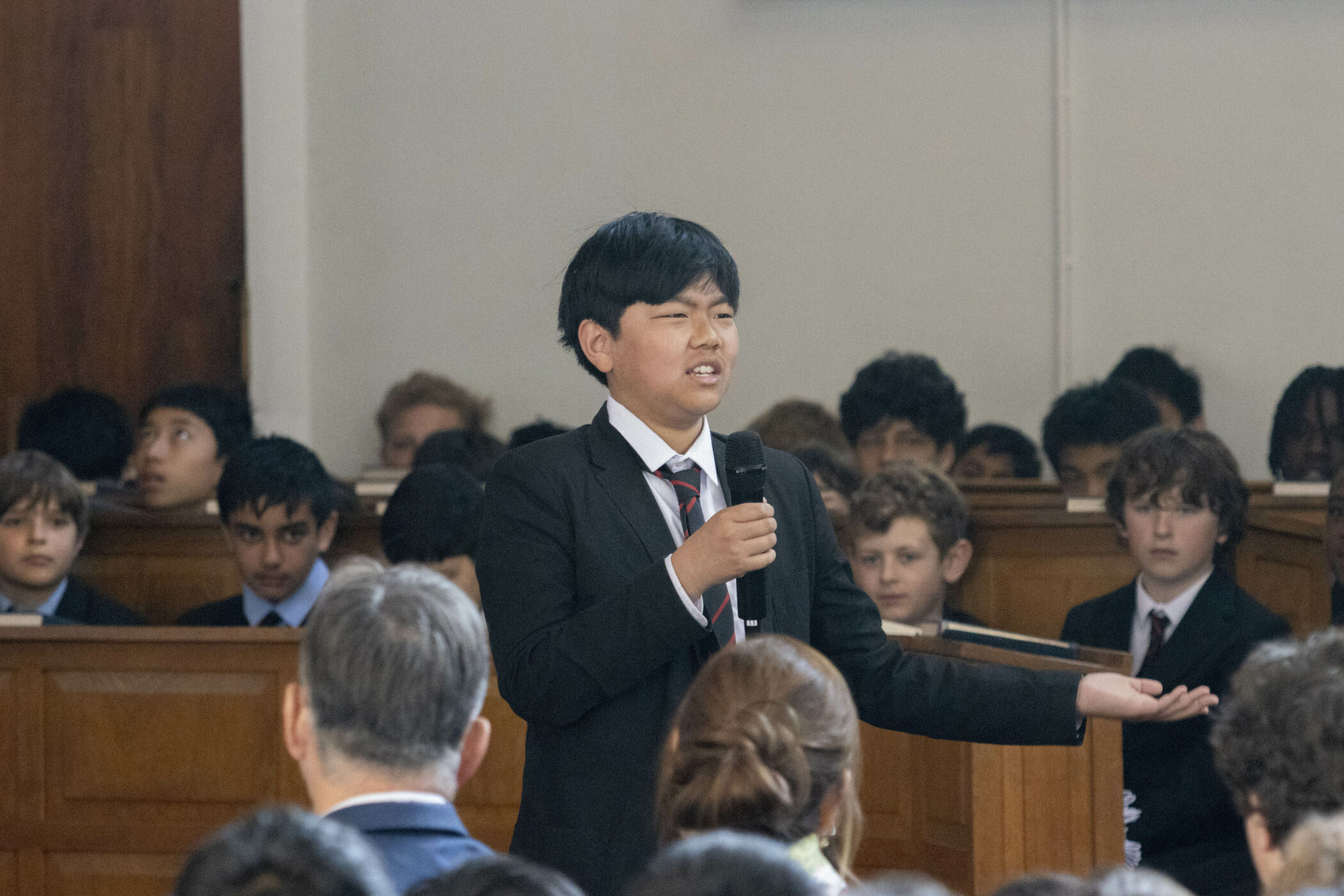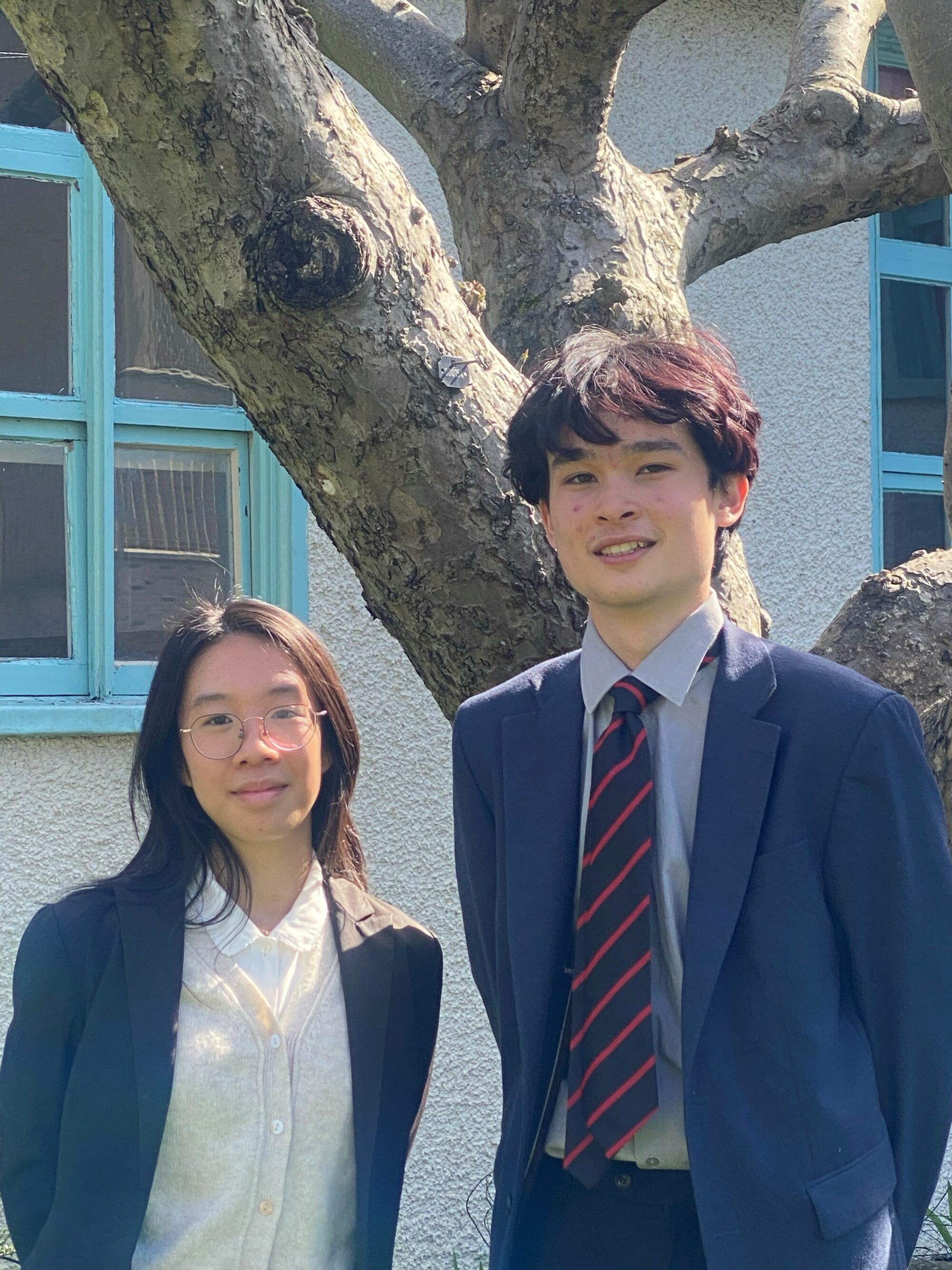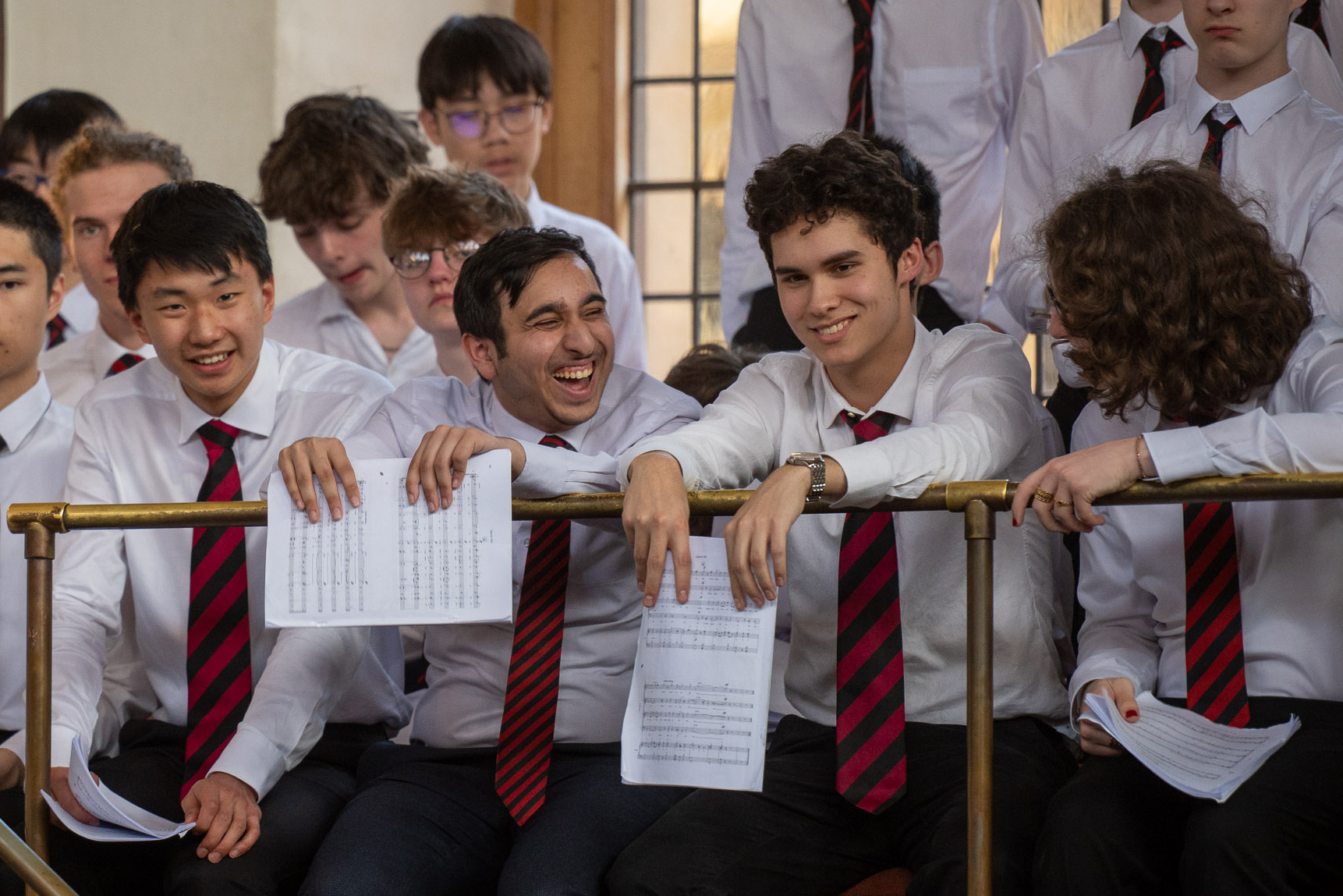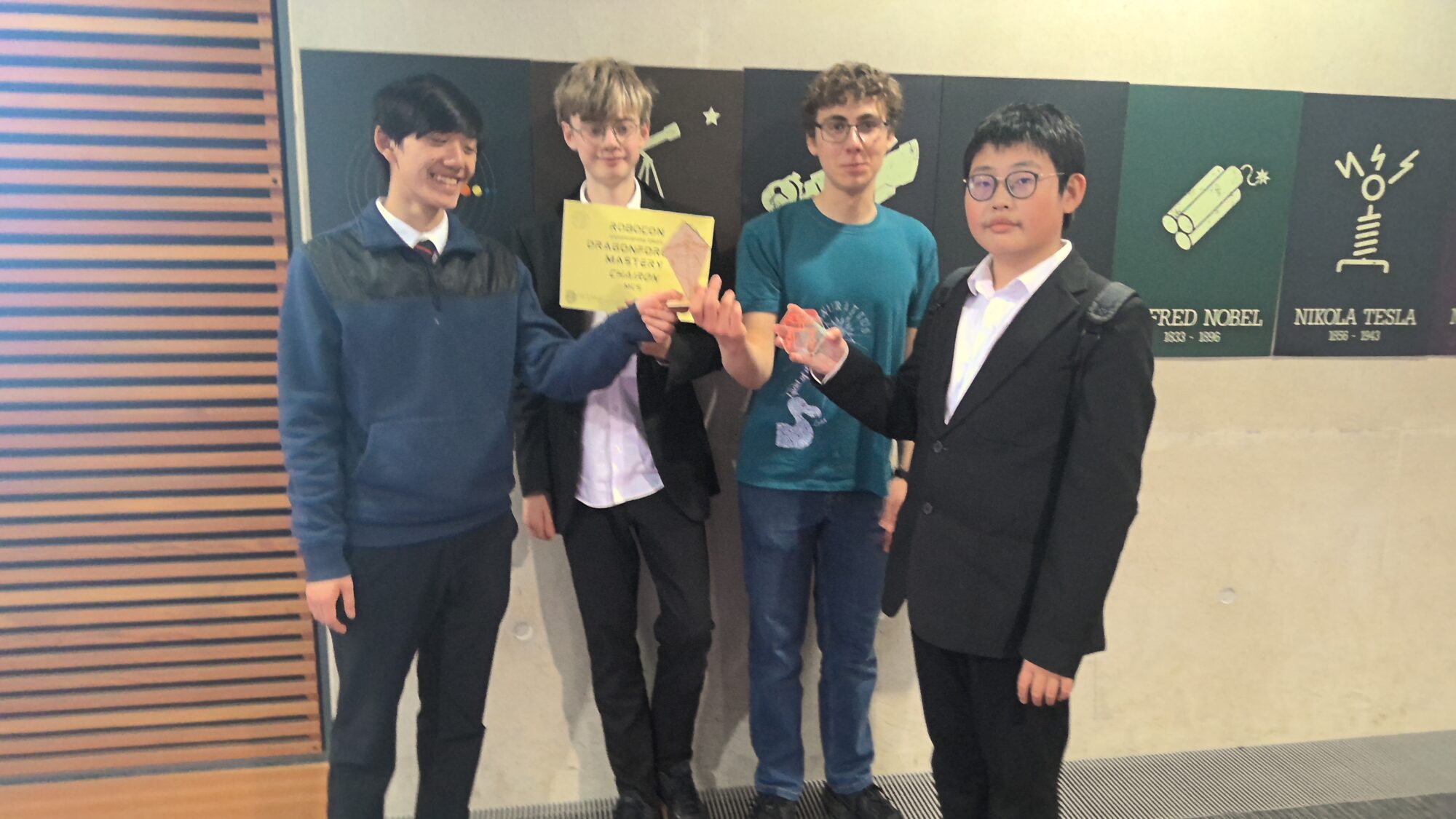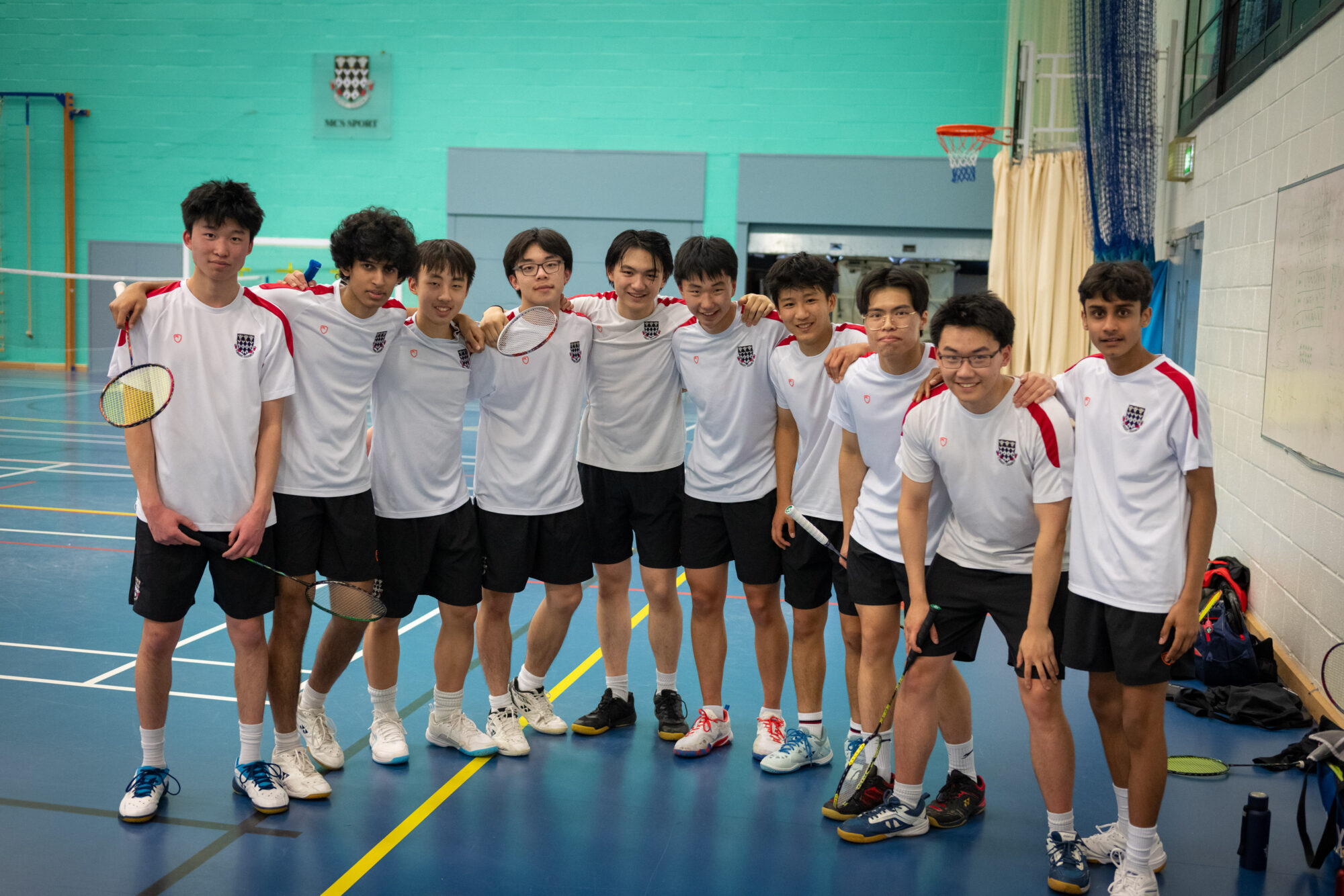MCS welcomed attendees to our annual Waynflete Studies evening on Friday evening. With many interesting topics being discussed; from American identity to aqueducts, there certainly was something for everyone! The event began with a drinks reception in Big School and an introduction by the Master before the presentations started in the Colin Sanders Building.
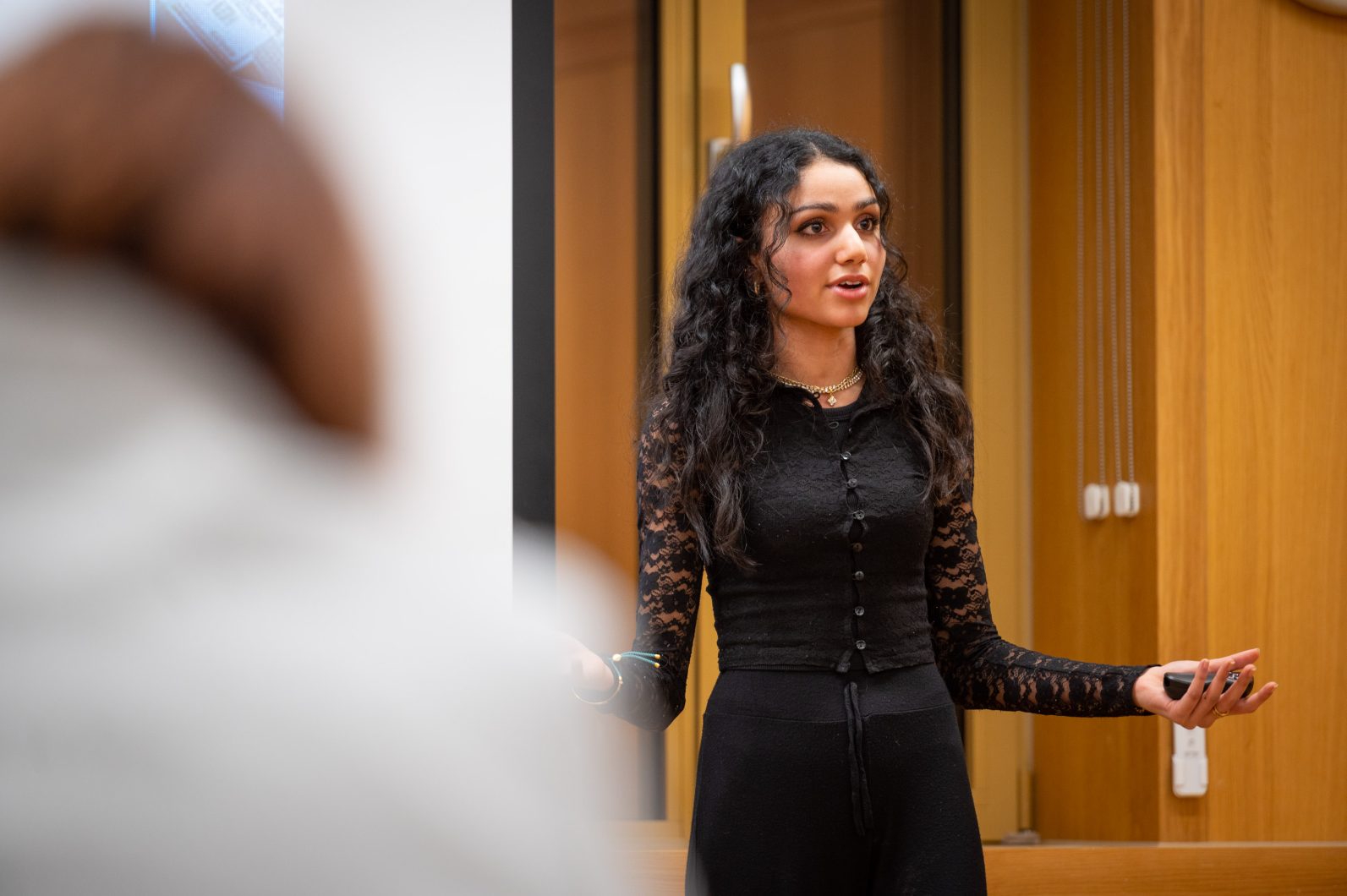
There were three rounds of presentations, involving 20 Upper Sixth pupils, each giving a talk on their Waynflete Studies research and taking questions from the audience. With topics in subject areas ranging from bioscience to humanities to the arts, the evening was a testament to the intellectual curiosity of the pupils involved.
The audiences all agreed that it gave the pupils a chance to demonstrate not only the depth of their research and analysis but also to develop their presentation skills and ability to handle tough and challenging questions.
We extend our congratulations to all those who presented for the mature and professional way in which they rose to the challenge.
The full list of pupils involved and their chosen subjects is as follows:
Biosciences
Tahmid: Brain-computer interfaces for the disabled
Rose: Infant gut microbiota and future behaviour
Yang: Electroconvulsive therapy vs antidepressants for depression
Luqi: Designing CRISPR/Cas treatments for viral infections
Zane: Treatment of cognitive dissonance in depression
Yiyi: Is silicon-based life possible?
Classics and Ancient History
Maria Teresa: Justification of matricide in Aeschylus’ Oresteia
William: Aqueducts in antiquity: physics and literature
Humanities and Social Sciences
Hans Bo: Climate Justice: Guilt and Duty
Thomas Simpson: Spontaneity in improvisation
English
Isabella: Fallen women in 19th century literature
Parisa: Does money “buy” happiness?
Hana: Gender income inequality in Japan
Computing & Physical Sciences
Joshua: Reinforcement learning and F1 Racing development
Charlie: Is extra-terrestrial mining feasible?
Jack: DIY Fluorescence Spectroscopy of Quantum Dots
Politics
Dexter: Beyond elections: choosing democratic representatives?
Caspar: American identity and the Vietnam war
Sophia: How resilient is Hungary’s democracy?
 MCS ranks among the top independent secondary schools, and in 2024 was awarded Independent School of the Year for our contribution to social mobility.
MCS ranks among the top independent secondary schools, and in 2024 was awarded Independent School of the Year for our contribution to social mobility.

 28 of our pupils achieved 10 or more 8 or 9 grades in 2024.
28 of our pupils achieved 10 or more 8 or 9 grades in 2024.
 In 2023-24, MCS received over £448,000 in donated funds.
In 2023-24, MCS received over £448,000 in donated funds.




